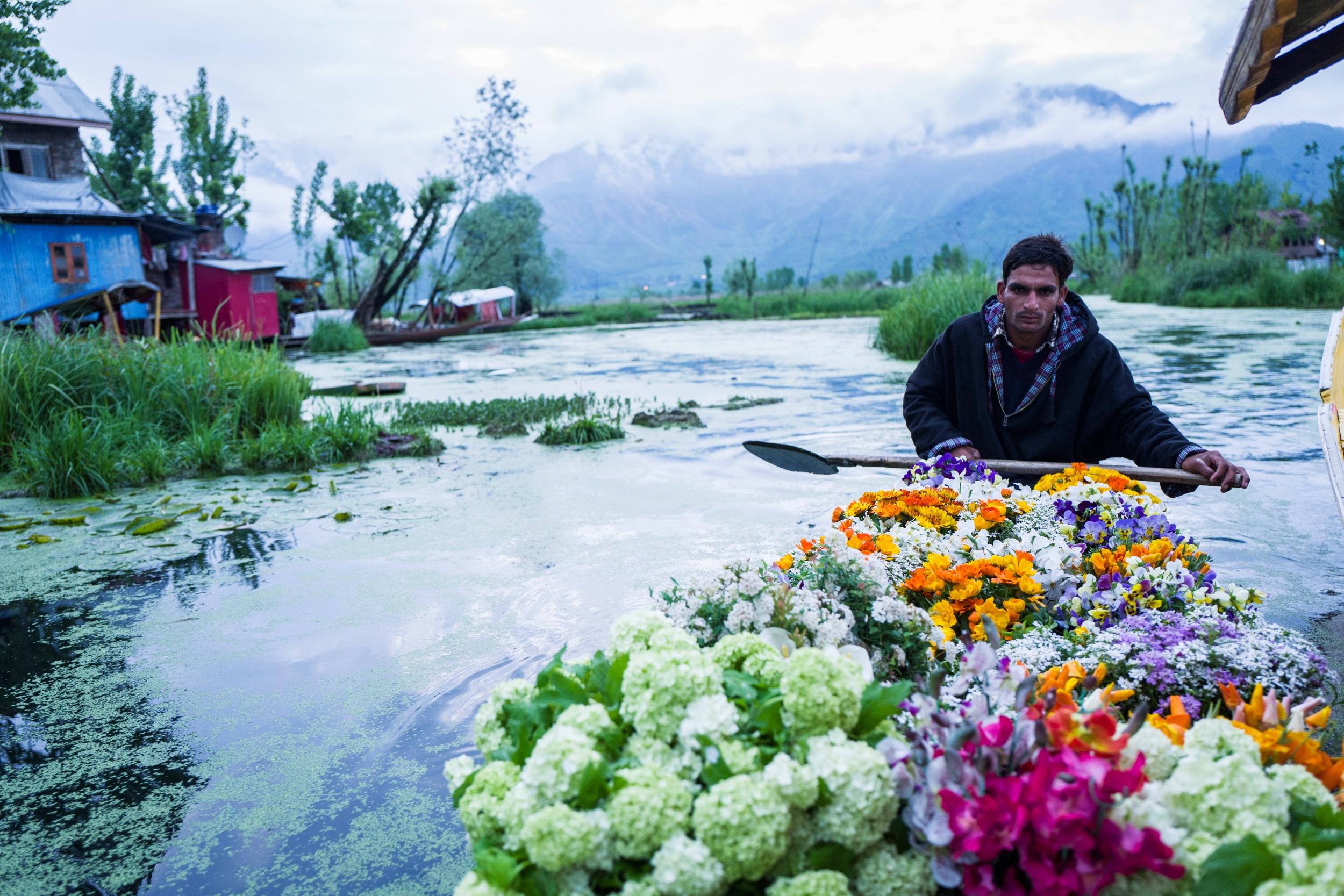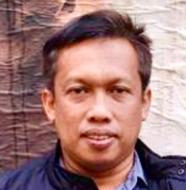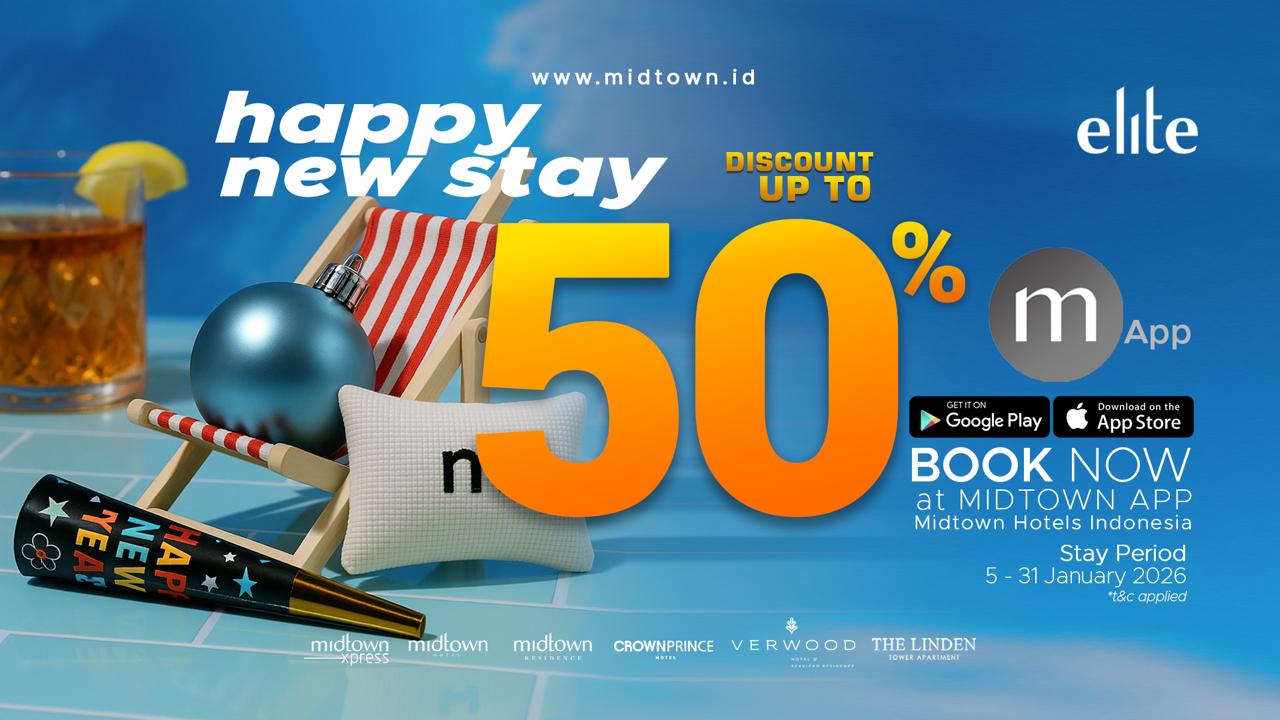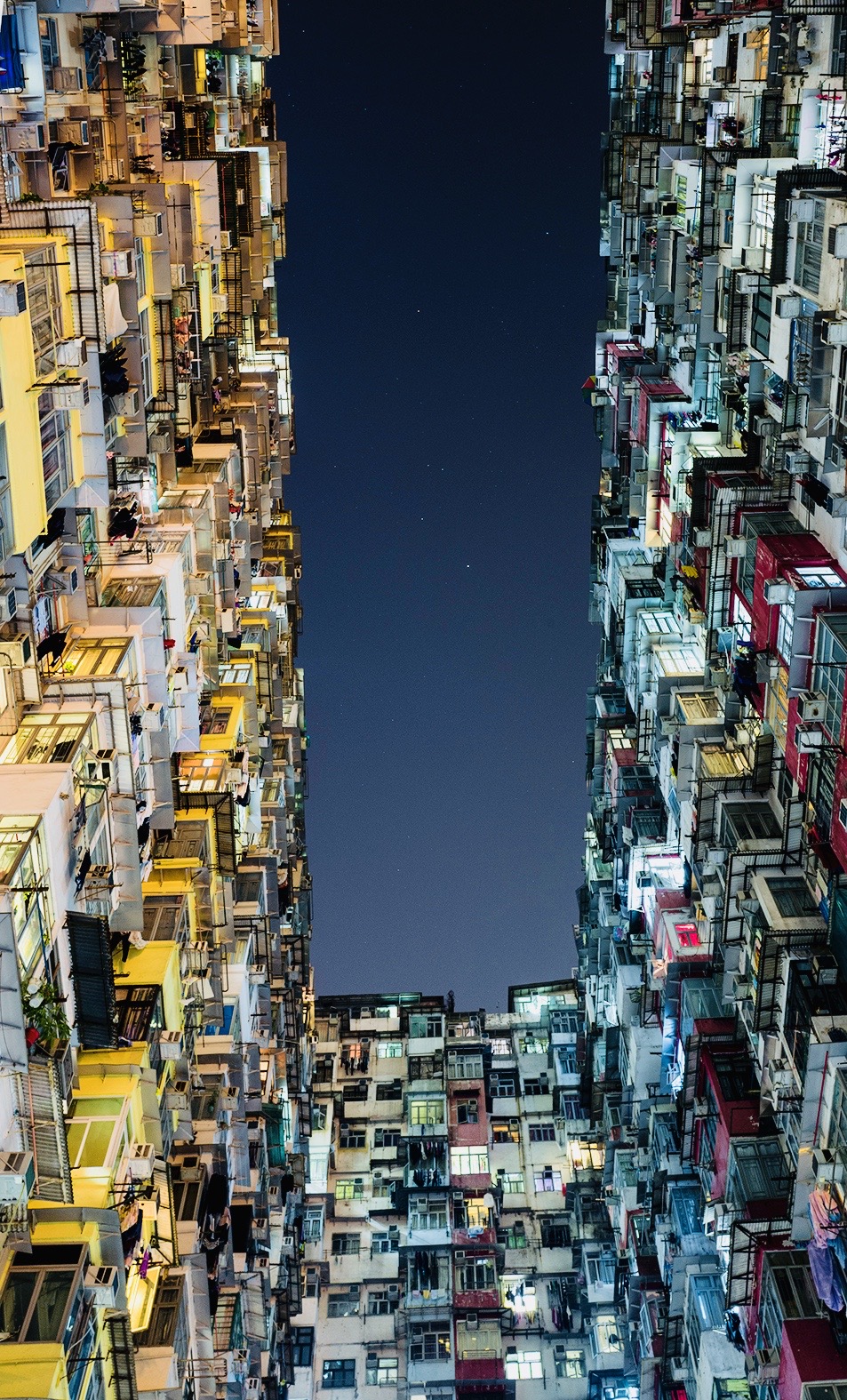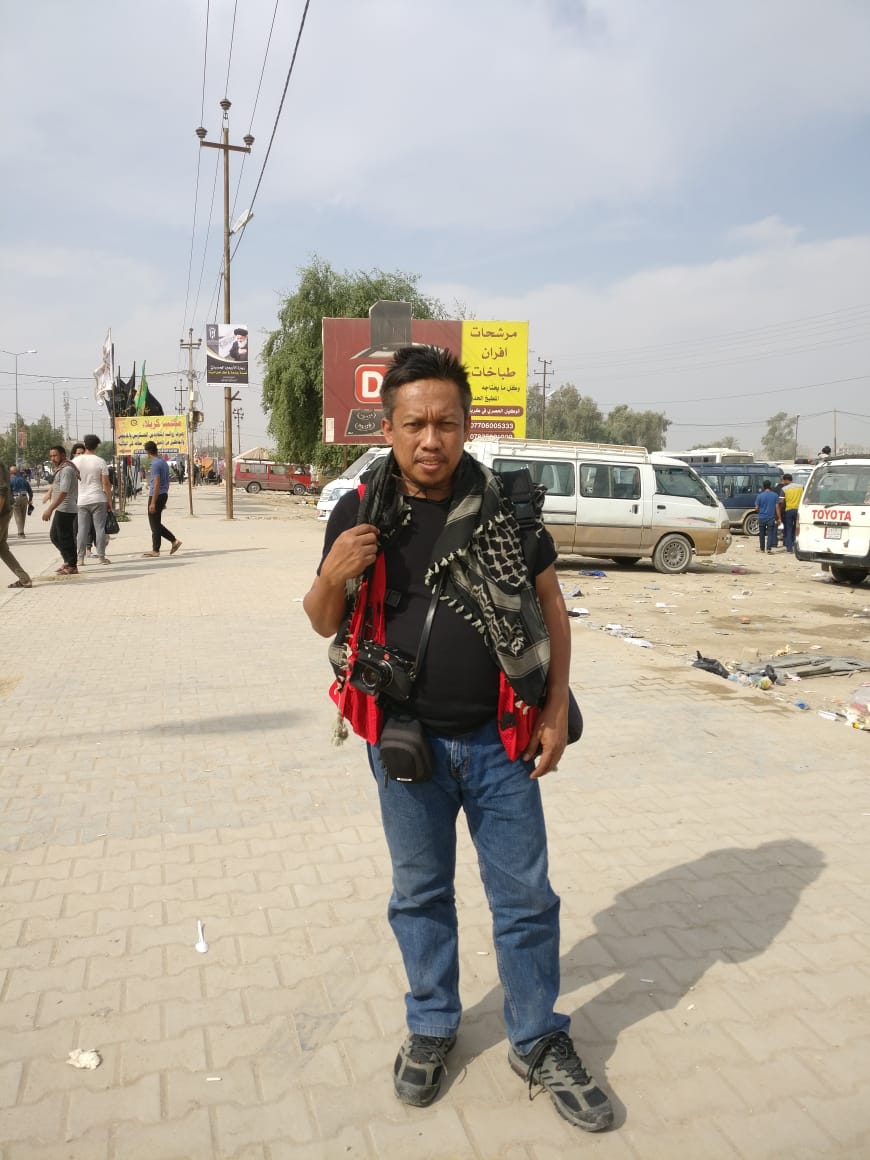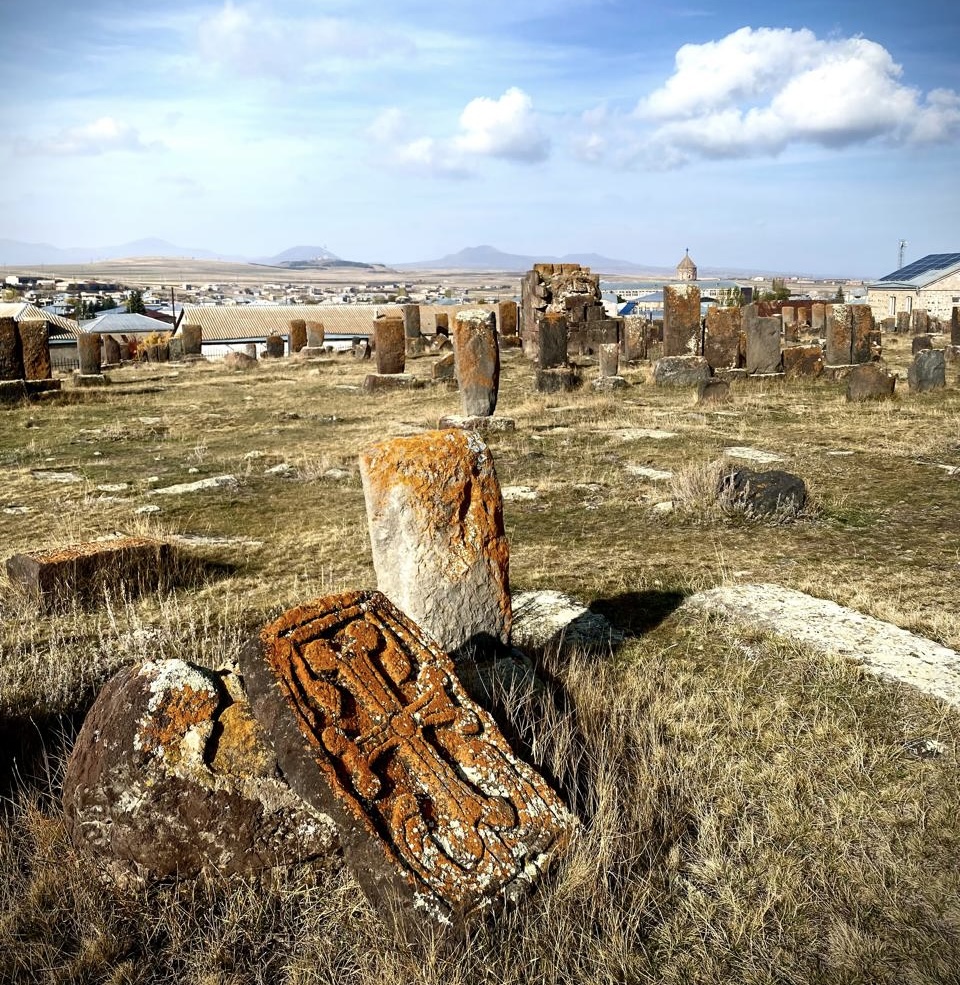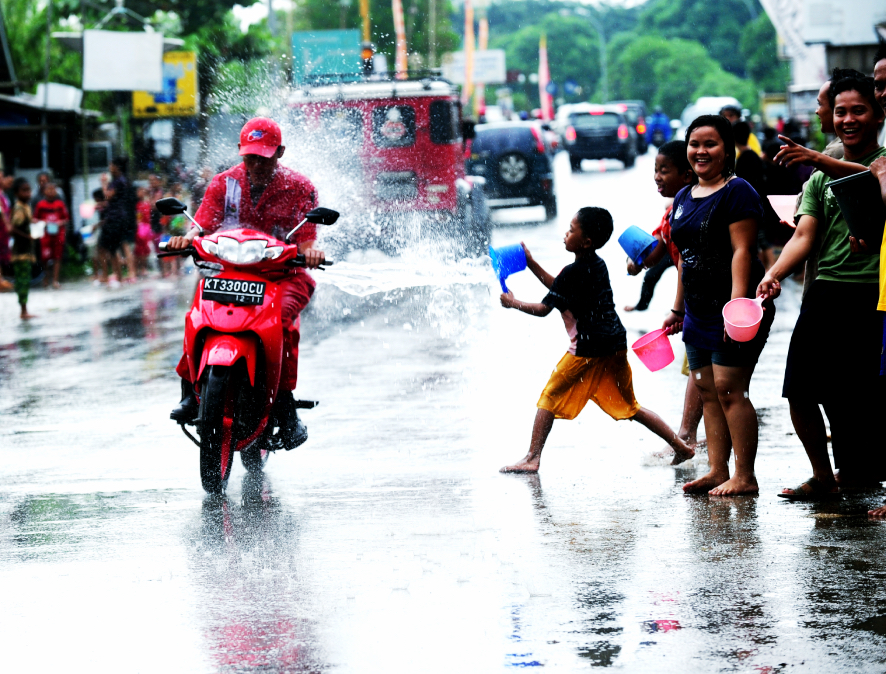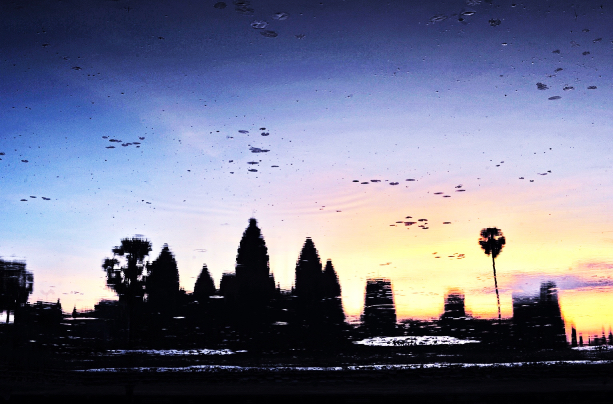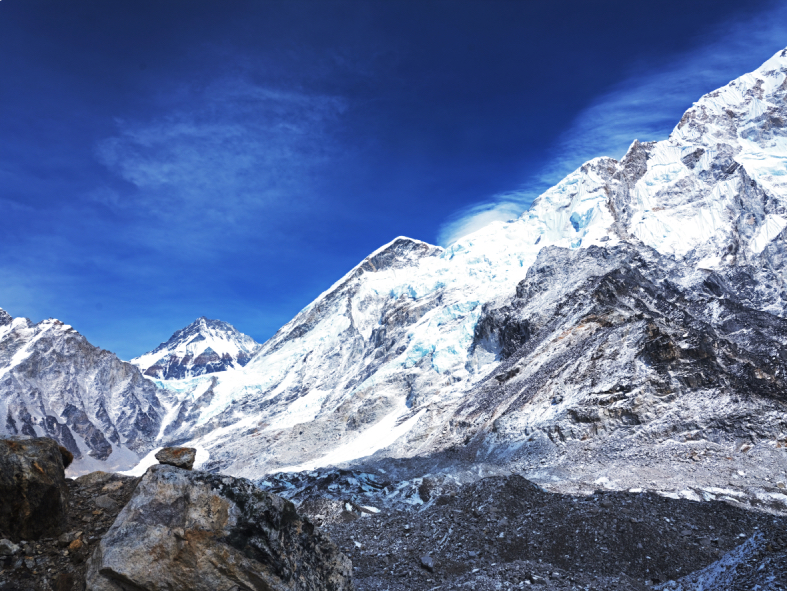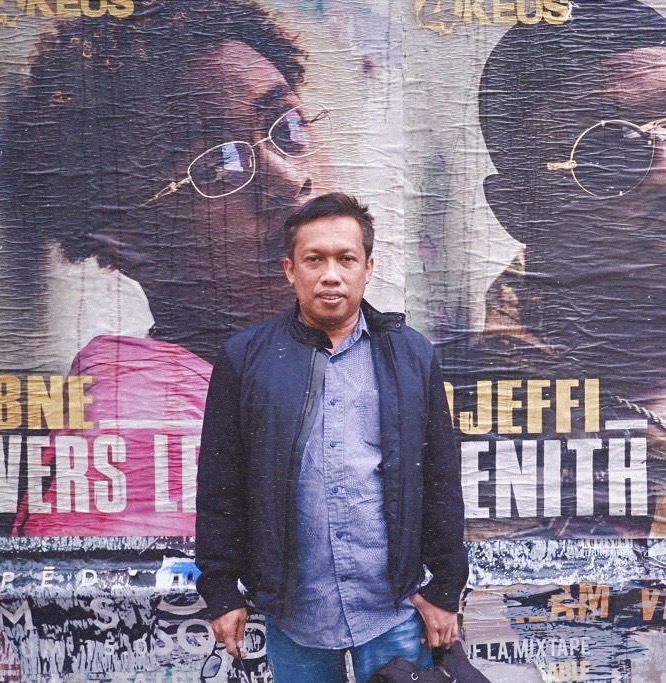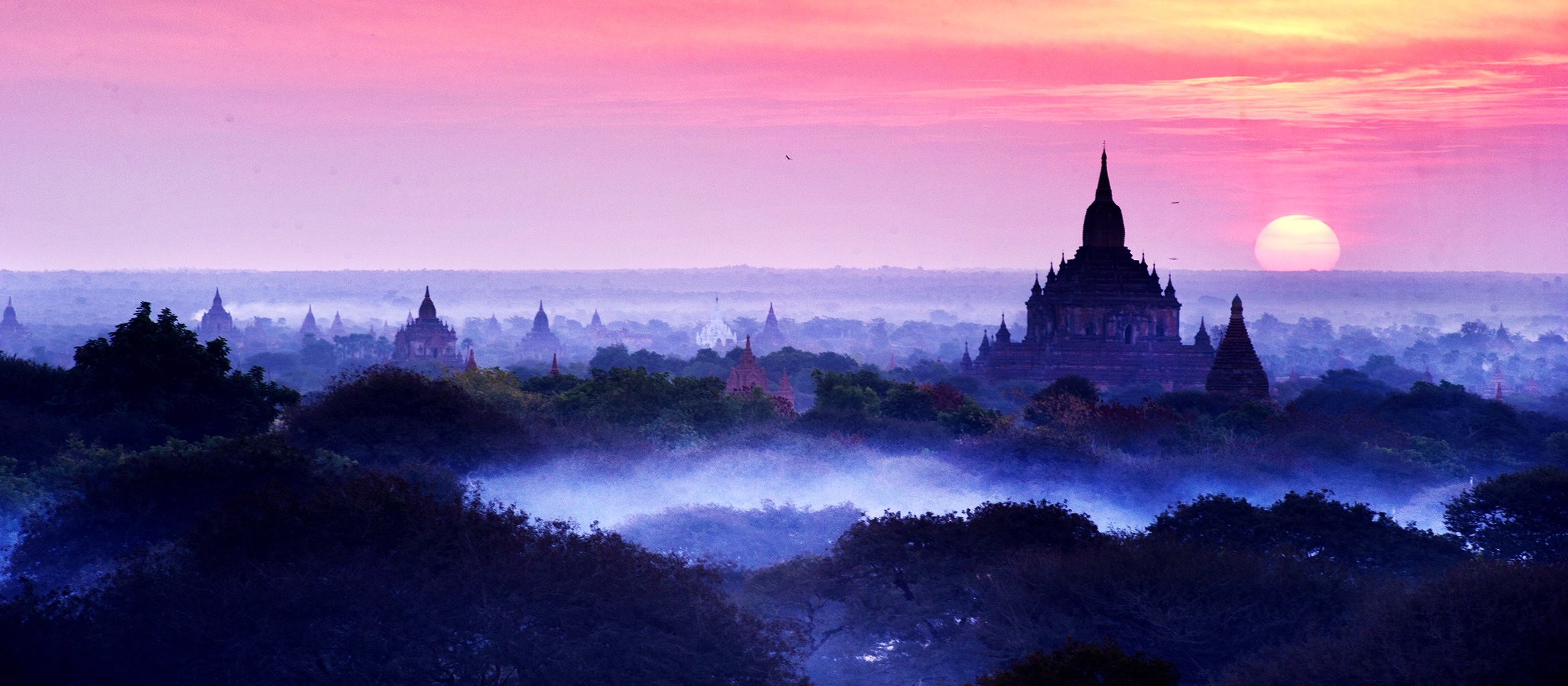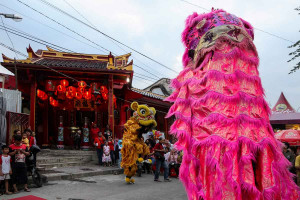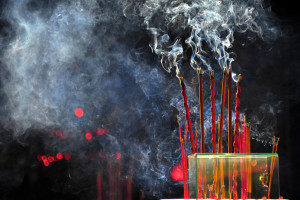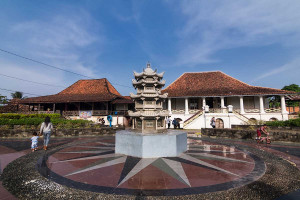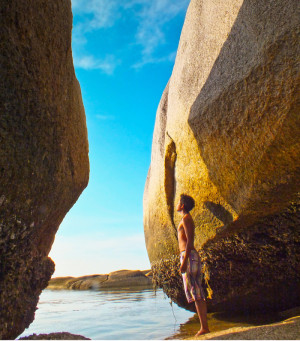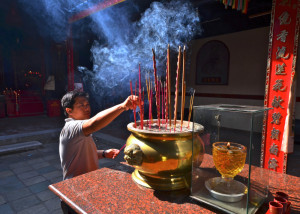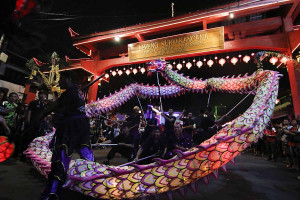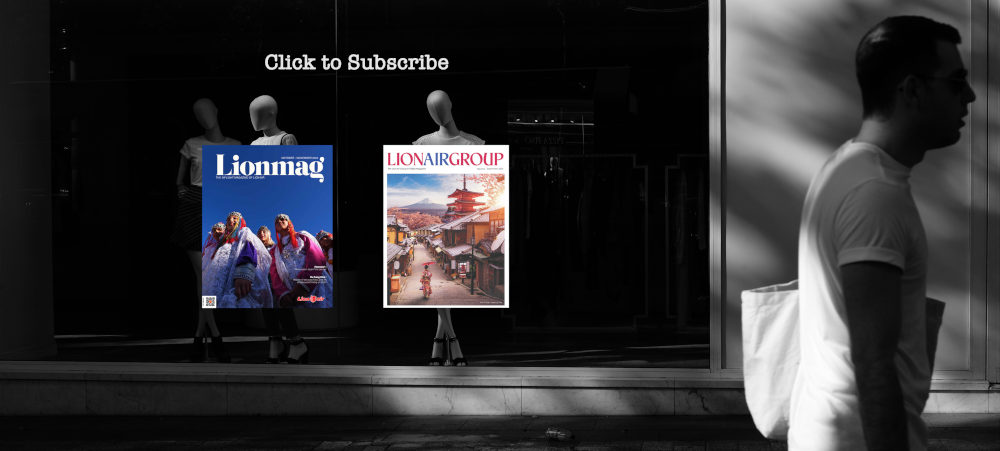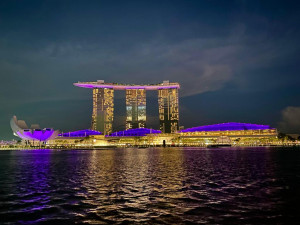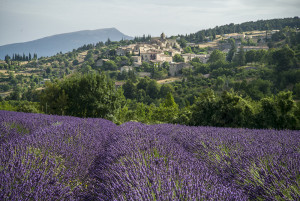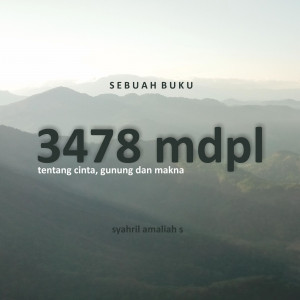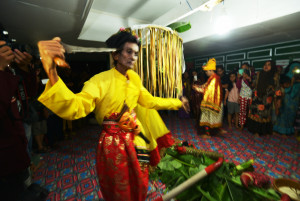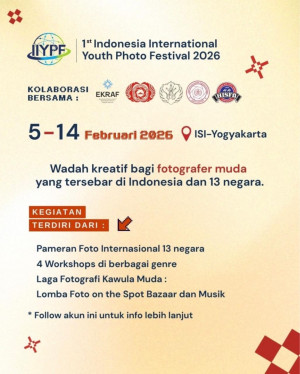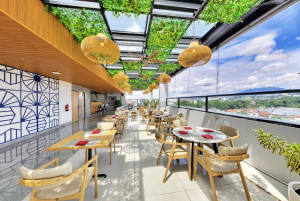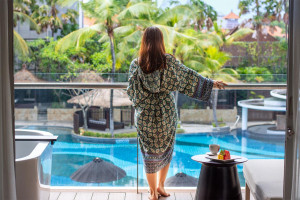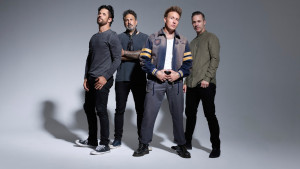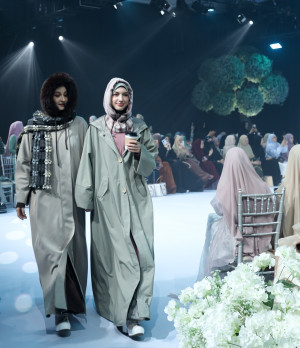Kashmir is different from other parts of India. There are snowy mountains, valleys with clear rivers, and plenty of agricultural produce.
The morning is approaching. The dawn call to prayer is heard from several mosques. Its sound penetrates the houseboats that line the shores of Dal Lake, Srinagar, India's northernmost region at the foot of the Himalayas. Slowly, the sun shone behind the snowy mountains.
In Srinagar, the capital of the Indian state of Jammu and Kashmir, Dal Lake is the main attraction. Almost all travelers desire to spend the night in the houseboats moored on the shores around the lake. These houseboats range from simple to luxurious. There are about a thousand houseboats in the surrounding Dal dań Lake.
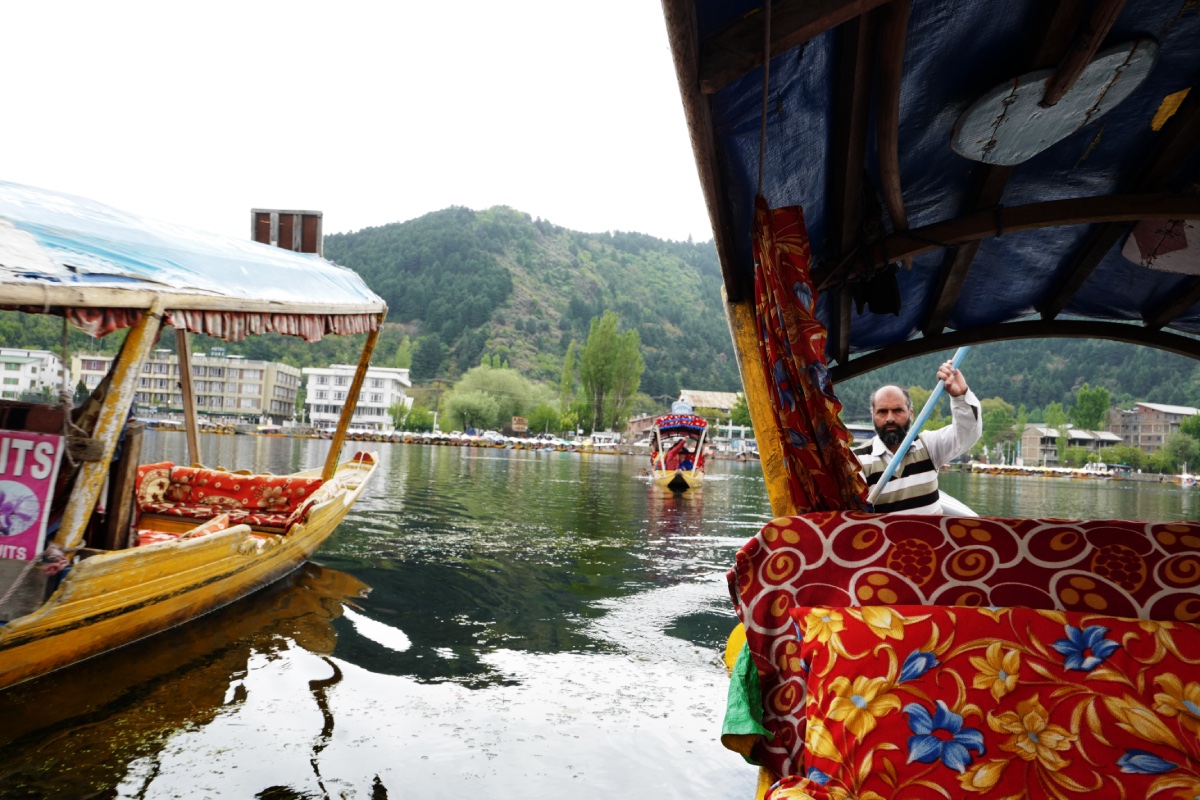 Shikara: a boat with a cloth roof and cushioned seats. PHOTO MAKHFUD SAPPE
Shikara: a boat with a cloth roof and cushioned seats. PHOTO MAKHFUD SAPPE
Travelers can also go around enjoying the beauty of the lake using a shikhara, which is a kind of rowing boat with a cloth roof and cushioned benches.
Enjoying the beauty of Dal Lake provides its memories memories. In the morning, the sunlight breaks through the passageways of the boat. In the distance, snow-capped mountain peaks can be seen, contrasting with the blue sky.
While enjoying the beauty of nature, boats selling various flowers pass by to greet the residents of the houseboats. They offer their wares.
Houseboats are generally managed by local families. Each houseboat is managed by a local family. Every houseboat on Dal Lake has a name. We chose the 'Pamposh' and 'New Pride of Kashmir' houseboats.
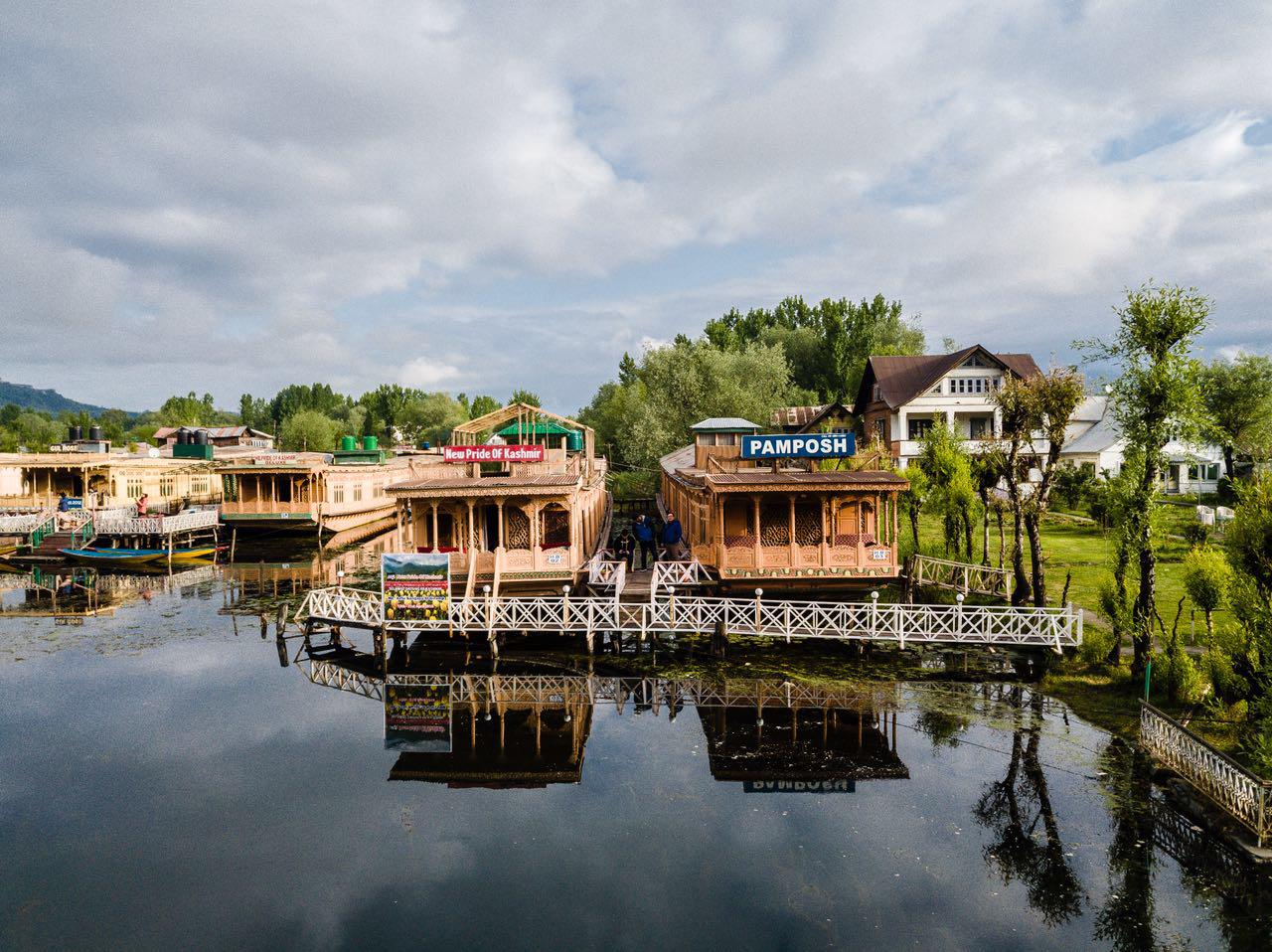
PAMPOSH and NEW PRIDE OF KASHMIR Houseboats. WILLY PHOTO
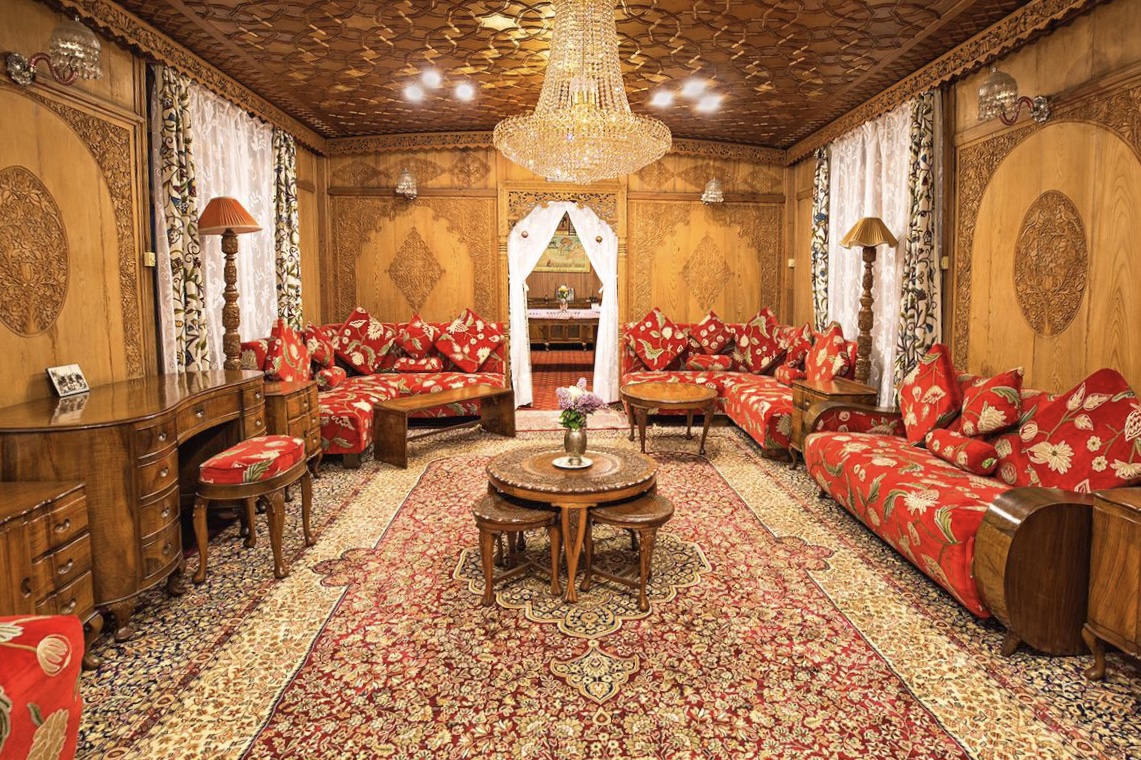
The living room of the houseboat. VERONICA SAVER PHOTO
My roommate Aries Sanjaya and I, along with a few traveling companions, chose to spend the night on the Pamposh. The houseboat consists of three large rooms. One spacious dining and living room with beautifully carved wooden walls and British-style wooden furniture.
"New Pride of Kashmir is 50 years old," says Sahid, the owner of the houseboat and our guide in Kashmir. "Pamposh belongs to my uncle," he adds.
Room rates at the houseboat vary from IDR 500,000 to IDR 5 million per night. Usually, this rate includes breakfast and dinner.
Travelers renting a houseboat should also ask if the rate includes the Shikara shuttle to the highway.
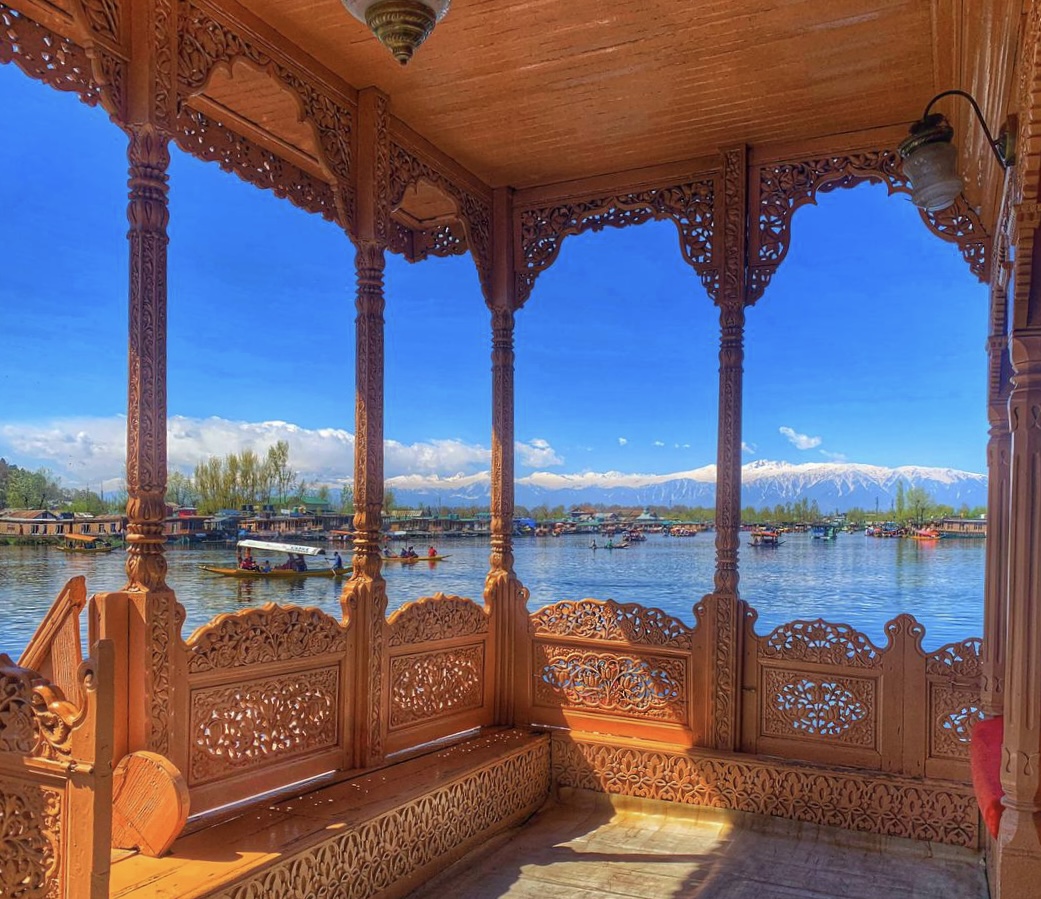 View from the Terrace of the houseboat. PHOTO ARTHUR TENG
View from the Terrace of the houseboat. PHOTO ARTHUR TENG
Kashmir or its official name Jammu-Kashmir (J&K) is the state with the largest Muslim population in India. They prefer to call themselves Kashmiri rather than Indian.
Until now, the J&K region is still characterized by a political crisis. It is a disputed territory between two neighboring countries, India and Pakistan. Some Kashmir is in Indian territory, while others are in Pakistani territory. In various corners of the city, you can often see heavily armed Indian army personnel.
Located at the foot of the Himalayan Mountains, Kashmir has unique tourism potential, different from other regions in India. Apart from its natural beauty, Kashmir is also famous for its high-quality pashmina, beautiful carpet crafts, and saffron production.
That's not all. There are also some beautiful gardens. The most unique is the Tulip Garden. As a high-altitude, snow-covered region, Kashmir has often been dubbed the 'Switzerland of India'.
Meanwhile, the existence of houseboats in Srinagar dates back to the period when the British ruled India. Gub Singh, the then King of Kashmir, did not allow the British to buy land or build property in the Kashmir Valley. Houseboats became the solution.
The British lived in small houseboats on Dal Lake with the locals. Over time, houseboats began to be built bigger with more rooms for accommodation.
As time went on, houseboats began to be built larger with more rooms for accommodation.
As the day begins with the morning light, the pulse of life at Dal Lake is busy. In addition to the shikara going back and forth delivering guests to and from the houseboats, there is also the bustling activity of merchants offering their wares to the houseboats. There are vendors selling flowers, silver ornaments, and even ice cream. All using boats.
If you want to exchange money, a boat money changer can also be called to the houseboat.
The next morning, Srinagar was still showered with light rain that had fallen since last night. It was cold, especially for those of us who are used to tropical weather. A few shikhara pass by the lake dropping off tourists.
We wait for the shikara that will take us to the floating market. With the shikara, we made our way through the rows of houseboats in the dim light of a rainy morning.

The floating market at Dal Lake generally does barter transactions. Photo : Makhfud Sappe
When we arrived at the floating market, we saw several people on boats exchanging merchandise. Generally, they exchange agricultural products.
That morning the market wasn't too crowded. Maybe it was because of the rain. There were only about 10 boats, apart from the shikara that we boarded. At around 7 am, the floating market dispersed. On the way back, we were occasionally approached by sellers of souvenirs and flower seeds.
Raindrops gave way to morning light. Small black birds flew between the houseboats. Our shikara moved slowly, sometimes swaying in the waves of the lake when it passed another shikara.
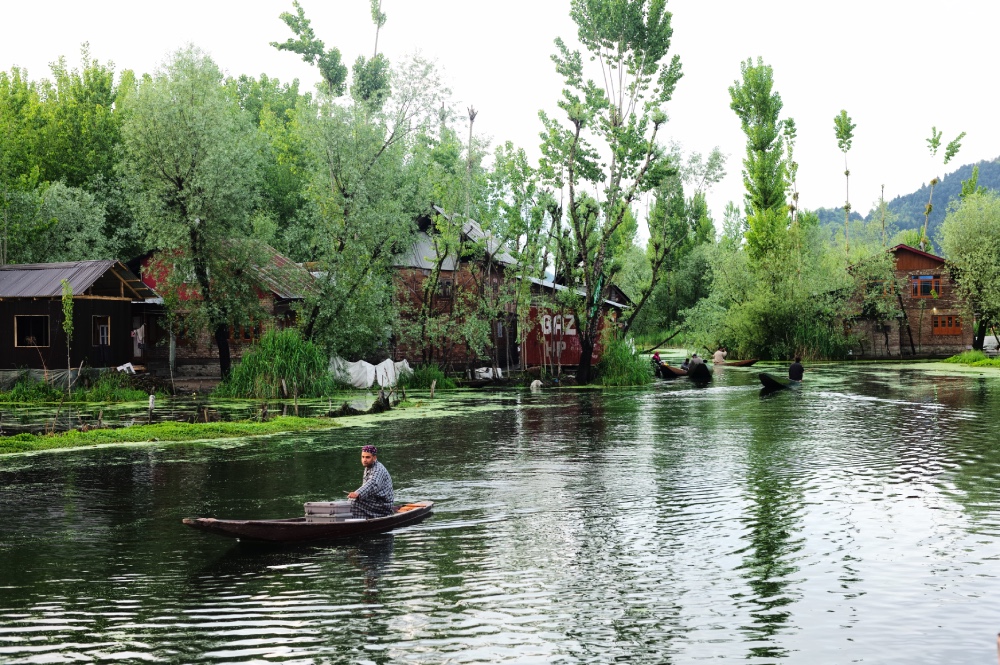
Boats are the main transport in Dal Like.
Three nights sleeping on a houseboat on Dal Lake, Srinagar, gave me a new experience.
Kashmir is different from other parts of India. There are snowy mountains, valleys with clear rivers, and agricultural produce.
Kashmir is also referred to as 'a heaven on earth'. An inch of heaven on earth. This could be why Kashmir is contested by India and Pakistan. (*)
New Pride of Kashmir : +919419046679 email: newprideofkashmirgroup@yahoo.com
Translated from Indonesian Article
Other article about INDIA : Holi Festival
